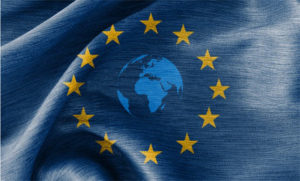The aggression of the Russian Federation against Ukraine made leaders of
the European Union reconsider its relations with Russia, and the key
requirement is respect for international law that envisages the restoration
of Ukraine’s sovereignty and territorial integrity, as well as to think of the
strengthening of its own security policy. In June 2014, the President of the
European Commission, Jean-Claude Juncker, stated: “I am convinced that
we need to work on a stronger Europe when it comes to security and
defence matters.” (European Union 2012, art. 42). Later, he added that “if
Europe does not take care of its own security, nobody else will do it.”
Since 2014, the EU has been working on adjusting its regulatory framework
in the field of security and defence aimed at developing defence capabilities,
enhancing security coordination among the EU member states and developing
resilience to withstand hybrid threats, which the EU has linked to Russia
and such terrorist organizations as ISIL.
The EU adopted an entirely new strategic document – the EU Global Strategy,
which reflected new approaches to European security, developed and started
implementing a series of operational and working documents. Practical
steps were taken, new security and defence institutions, working bodies and
units were established. In order to carry out reviewed security and defence
tasks, the EU revised budget spending for these goals and created a separate
European Defence Fund. And this work continues today, including activities
within the Permanent Structured Cooperation (PESCO), which is considered
a breakthrough solution to strengthen security cooperation in the EU.
While taking security and defence efforts, the EU is steadily moving to a
“security union” that will not replace NATO, but will significantly strengthen
joint actions to detect and neutralize threats, especially hybrid ones. This will
allow the EU to use fully its security and defence capabilities, and complement
NATO’s military capabilities.
Subscribe for Newsletter



